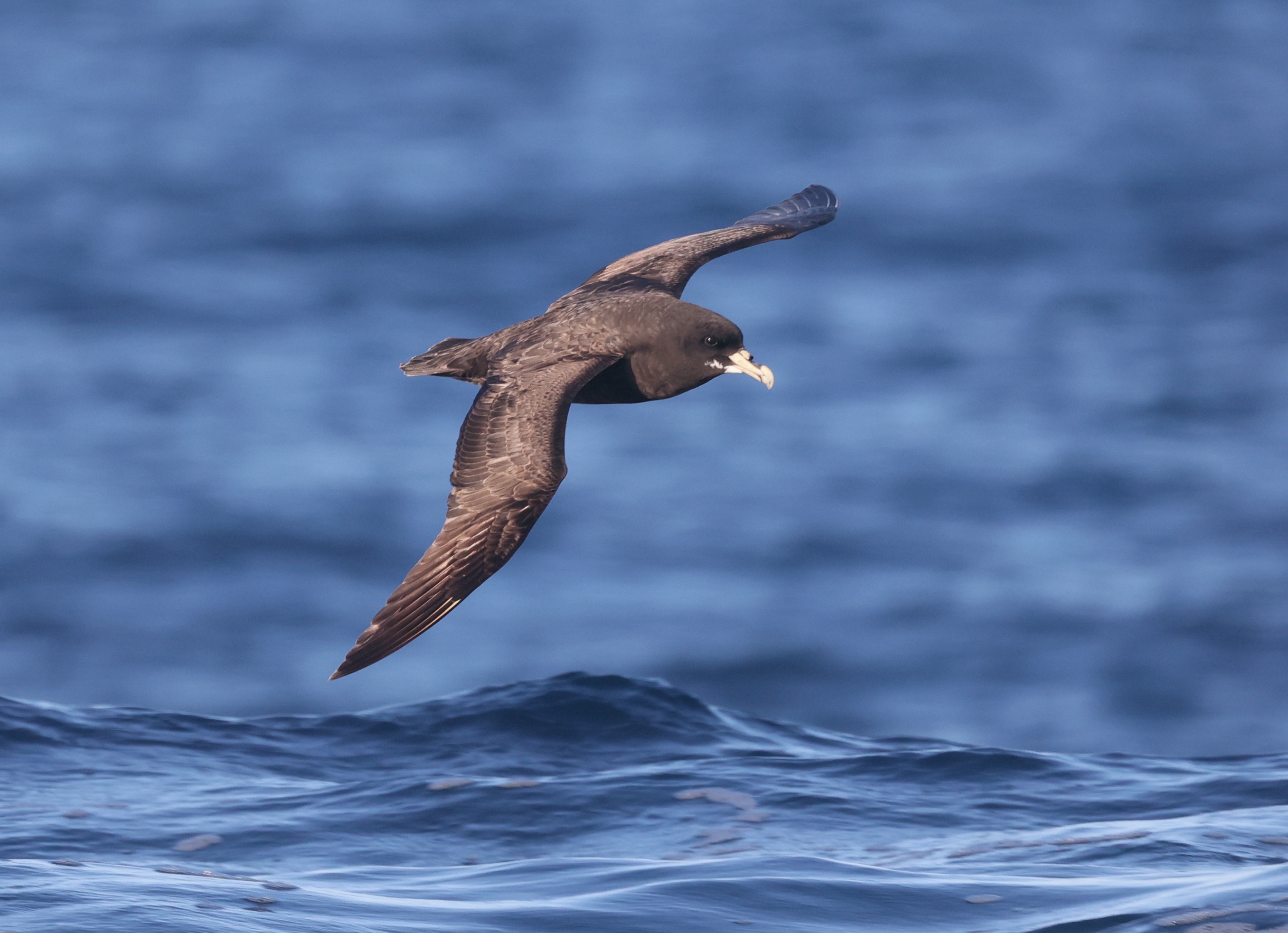 A Vulnerable White-chinned Petrel at sea; photgraph by Petre Ryan
A Vulnerable White-chinned Petrel at sea; photgraph by Petre Ryan
The Conservation Services Program of New Zealand’s Department of Conservation has released a report by Kalinka Rexer-Huber (Parker Conservation, Dunedin, New Zealand) and colleagues on the White-chinned Petrel Procellaria aequinoctialis population of the Antipodes Island.
The report’s Summary follows:
This study provides an updated estimate of the white-chinned petrel (Procellaria aequinoctialis) breeding population size on Antipodes Island. We also detail the setup of a mark-recapture study suitable for estimating key vital rates and detecting population change, adult survival in particular. Lastly, we document blood and feather collection for a wider study on mercury contamination, and deployment and recovery of time-depth recorders for data on dive depth of white-chinned petrels.
Population size estimate. Burrow density is estimated from a representative sample of burrowed areas then corrected for burrow occupancy and extrapolated to the available area of nesting habitat to estimate the breeding population of white-chinned petrels. For an estimate as accurate and precise as possible we built on previous efforts in 2009–11 and 2021–22 (Thompson 2019; Elliott & Walker 2022). To estimate burrow density we used the distance sampling dataset from 2021–22 and expanded the sampling coverage across the whole island, adding 93 transects to a new total of 248 island-wide sampling locations. Distance sampling enabled burrow density estimates that explicitly account for burrow detectability. Occupancy was assessed by inspecting 293 burrows just after laying, calculating rates and corrections using the approach developed for the 2009–11 study (burrow numbers corrected for entrances that are not in fact burrows, and for other species using white-chinned petrel burrows). The area used by white-chinned petrels, with two habitat types distinguishable, was drawn from comprehensive habitat mapping 2021–22. Antipodes Island had an estimated 26,400 (95% CI: 22,200–31,600) white-chinned petrel pairs breeding in Dec 2022 during early incubation. Burrow detectability was different in the two habitat types and occupancy rates differed, so for accuracy the estimate used burrow density, area and occupancy specific to each habitat type. These refinements to 2009–11 and 2021–22 methods result in a population size estimate here that is smaller but more accurate and precise.
Demographic study setup. Population change is more readily detected via intensive study of birds in a representative study population, so we established a mark-recapture study to estimate vital rates, survival in particular. Marked burrows in two study areas contain 169 banded white-chinned petrels. For accurate, precise survival estimates this marked population needs building further, along with recaptures at existing marked burrows for a minimum of three years.
Recommendations. An efficient and effective long-term monitoring strategy could combine annual intensive monitoring effort in a representative study population, as set up here, supplemented by occasional whole- island population size estimates (5–10-year intervals). Ongoing mark-recapture will enable robust trend estimation over time, with whole-island estimates providing occasional more-general overview of breeding numbers.
Reference:
Rexer-Huber K., Parker G.C., Elliott G., Walker K. 2023. Antipodes white-chinned petrel population size and survival study setup. Final report to the Department of Conservation. Parker Conservation, Dunedin. 18 p.
13 September 2023

 English
English  Français
Français  Español
Español